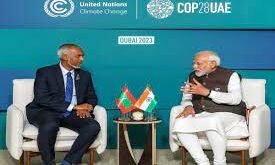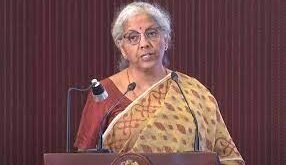
Adhir Ranjan Chowdhury, the Congress Member of Parliament and Leader of the Opposition in Lok Sabha, has raised concerns over his recent suspension from the House due to “unruly behavior.” Chowdhury referred to the suspension as “a new phenomenon” that he and his colleagues have never encountered in their parliamentary careers.
In response to his suspension, Chowdhury questioned the idea that expressing arguments in the House could warrant such punitive measures. He maintained that his remarks during the no-confidence debate were not intended to hurt anyone. He labeled the suspension as a deliberate attempt by the ruling party to stifle opposition voices and undermine the essence of parliamentary democracy.
Chowdhury expressed his apprehensions, stating, “This is a new phenomenon we have never before experienced in our career in Parliament…This is a deliberate design by the ruling party to throttle the voice of the opposition…This will undermine the spirit of parliamentary democracy.” He even suggested that if necessary, he would not hesitate to approach the Supreme Court for legal recourse.
The suspension stemmed from remarks Chowdhury made during the no-confidence motion debate. He compared Prime Minister Narendra Modi to fugitive businessman Nirav Modi and Dhritarashtra, a character from the Hindu epic Mahabharata. This comparison prompted Union parliamentary affairs minister Pralhad Joshi to move a suspension motion, arguing that baseless allegations against the Prime Minister could not be accepted.
Chowdhury also delved into the matter of the name chosen by the newly-formed Opposition alliance, I.N.D.I.A., and questioned the opposition to its use by PM Modi. He reflected on the evolution of BJP’s name, which transformed from Visva Hindu Parishad and Bharatiya Jana Sangh to NDA over time. He suggested that PM Modi’s discomfort with the term I.N.D.I.A. implied something significant about the current political climate.
The suspended MP’s statements underscore the ongoing tensions between the ruling party and the opposition, with parliamentary proceedings often becoming battlegrounds for ideological clashes. Chowdhury’s consideration of approaching the Supreme Court reflects the increasing recourse to legal avenues to address political disputes.
As the political discourse continues to evolve, Chowdhury’s suspension and his subsequent reactions highlight the complexities of maintaining a balanced and respectful parliamentary environment, while also ensuring freedom of expression for elected representatives.
Sources By Agencies
 Digital Scoop India Official Platform of Digital Scoop India Featuring Latest & Best News #Articles #Bytes #Entertainment #DigitalScoopMagazine
Digital Scoop India Official Platform of Digital Scoop India Featuring Latest & Best News #Articles #Bytes #Entertainment #DigitalScoopMagazine



